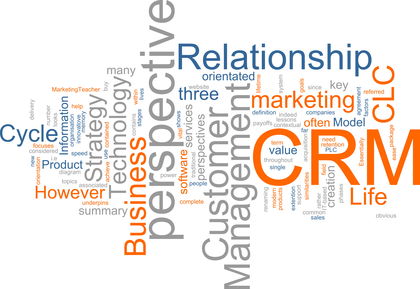
Optimal Customer Service Management (CRM) development for your organization, the only comprehensive IT infrastructure that you need!
- Custom CRM Solution
- CRM Integration & Development
- CRM Implementation
- CRM Support & Training
- CRM Consulting Services
- CRM Application Development
Benefits With Our Service
- Improved customer relationships through personalized communication and targeted marketing.
- Enhanced customer service by efficiently managing customer inquiries and providing personalized support.
- Increased sales effectiveness with better lead tracking, sales pipeline management, and automation.
- Streamlined marketing activities by leveraging customer insights for targeted campaigns.
- Data-driven decision making with robust reporting and analytics capabilities.
- Improved internal collaboration and efficiency across departments.
- Scalability and support for business growth.

Customer Relationship Management (CRM) systems offer several benefits to businesses.
Improved Customer Relationships: CRM systems help businesses build and maintain strong customer relationships. By centralizing customer data and interactions, businesses gain a comprehensive view of each customer, enabling personalized communication and targeted marketing efforts. This leads to better customer satisfaction, loyalty, and retention.
Enhanced Customer Service: CRM systems provide tools and functionalities to manage customer support and service processes efficiently. Businesses can track customer inquiries, resolve issues promptly, and provide personalized support. This results in improved customer service experiences, faster response times, and increased customer satisfaction.
Increased Sales Effectiveness: CRM systems enable businesses to track leads, manage sales pipelines, and automate sales processes. Sales teams can access real-time customer information, prioritize leads, and effectively manage sales opportunities. This leads to improved sales efficiency, better sales forecasting, and increased conversion rates.
Streamlined Marketing Activities: CRM systems provide valuable insights into customer behavior, preferences, and buying patterns. This data helps businesses segment their customer base, target specific audiences, and execute targeted marketing campaigns. By delivering personalized and relevant marketing messages, businesses can achieve higher engagement, conversion rates, and marketing ROI.
Data-Driven Decision Making: CRM systems offer robust reporting and analytics capabilities. Businesses can generate detailed reports on customer interactions, sales performance, and marketing effectiveness. These insights enable data-driven decision making, allowing businesses to identify trends, optimize strategies, and allocate resources effectively.
Improved Internal Collaboration: CRM systems facilitate seamless communication and collaboration among teams. Different departments, such as sales, marketing, and customer service, can access and update customer information in real-time. This shared knowledge enhances teamwork, coordination, and overall efficiency within the organization.
Scalability and Growth: CRM systems are designed to scale with the growth of a business. They can accommodate a growing customer base, expanding sales operations, and evolving business needs. As businesses expand, CRM systems provide the foundation to manage and nurture customer relationships effectively.
I can provide assistance to your business in various ways. Here are a few examples of how I can help.
CRM stands for Customer Relationship Management. It refers to both the strategies and technologies businesses use to manage and nurture their customer relationships. CRM encompasses various practices and tools designed to streamline customer interactions, improve customer satisfaction, and drive business growth.
Using CRM (Customer Relationship Management) enables companies to.
- Centralize customer data for a unified view.
- Improve customer relationships through personalized experiences.
- Streamline sales processes and prioritize leads.
- Target marketing campaigns based on customer insights.
- Make data-driven decisions for enhanced business outcomes.
Buyer personas are typically created through market research, customer surveys, interviews, and analysis of existing customer data. They are developed based on demographics, behaviors, motivations, goals, and challenges of a target audience. Businesses gather information through various means such as customer feedback, analytics, and market research to understand their customers better and define buyer personas.
Customer Relationship Management (CRM) systems can be categorized into different types based on their functionality and deployment options. Here are some common types of CRM.

